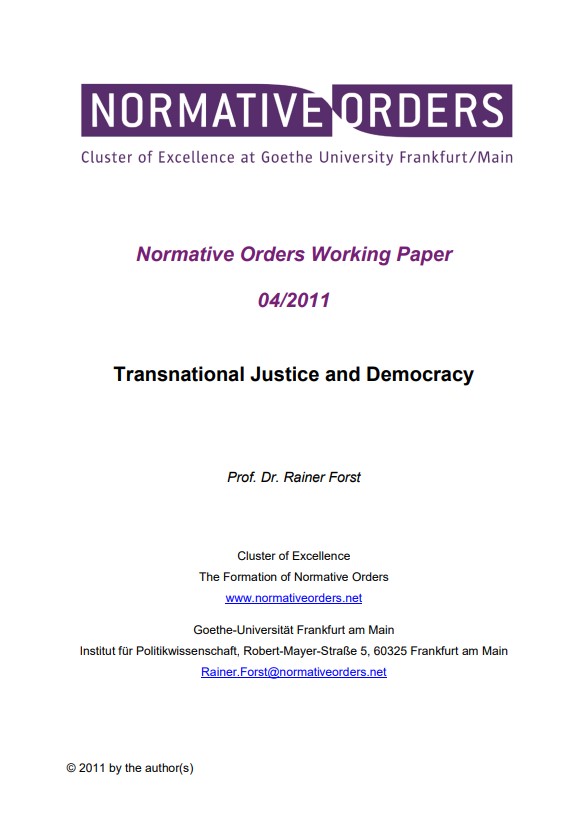Transnational Justice and Democracy
The title I have chosen seems to signal a tension, even a contradiction, in a number of respects. Democracy appears to be a form of political organization and government in which, through general and public participatory procedures, a sufficiently legitimate political will is formed which acquires the force of law. Justice, by contrast, appears to be a value external to this context which is not so much linked to procedures of “input” or “throughput” legitimation but is understood instead as an output- or outcome-oriented concept. At times, justice is even understood as an otherworldly idea which, when transported into the Platonic cave, merely causes trouble and ends up as an undemocratic elite project. In methodological terms, too, this difference is sometimes signalled in terms of a contrast between a form of “worldly” political thought and “abstract” and otherworldly philosophical reflection on justice. In my view, we are bound to talk past the issues to be discussed under the heading “transnational justice and democracy” unless we first root out false dichotomies such as the ones mentioned. My thesis will be that justice must be “secularized” or “grounded” both with regard to how we understand it and to its application to relations beyond the state.


